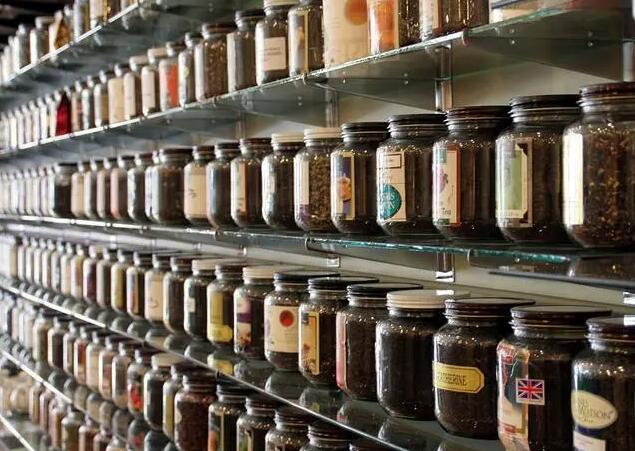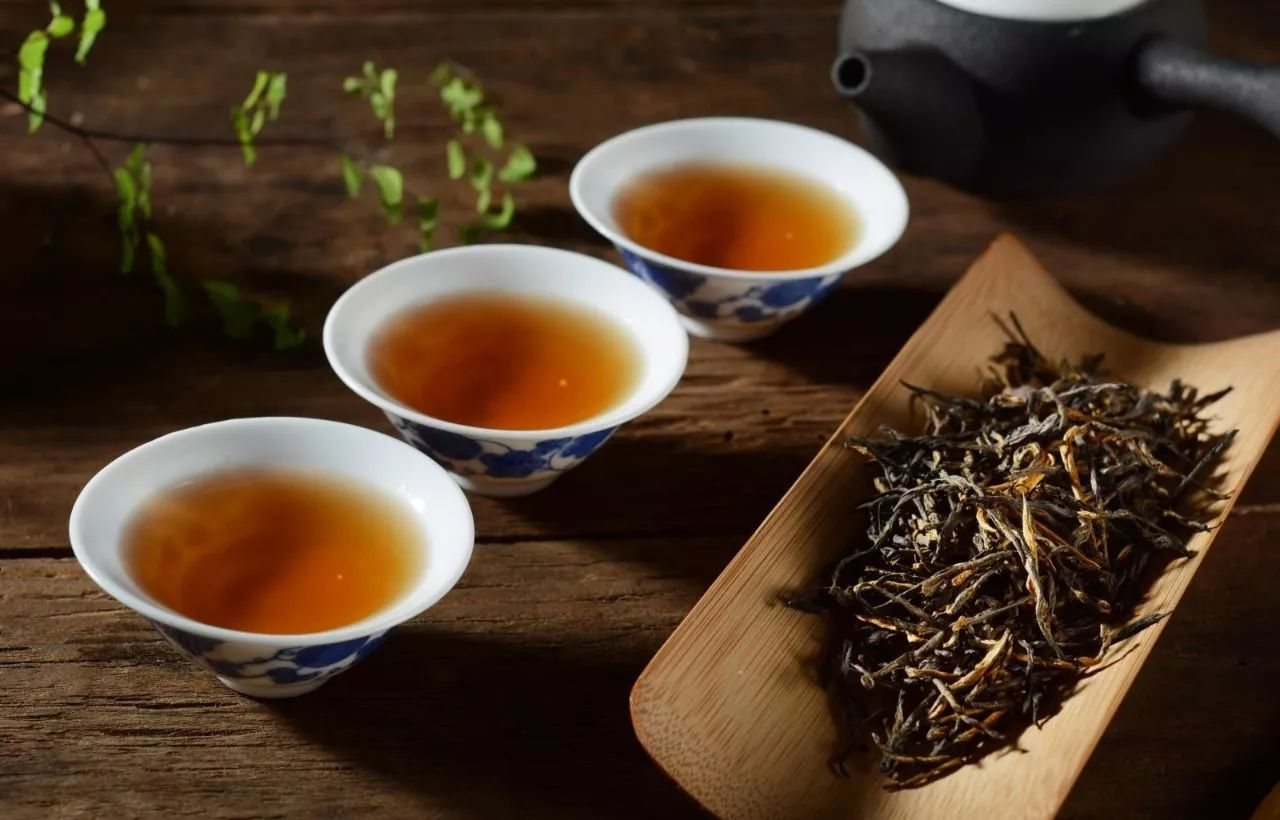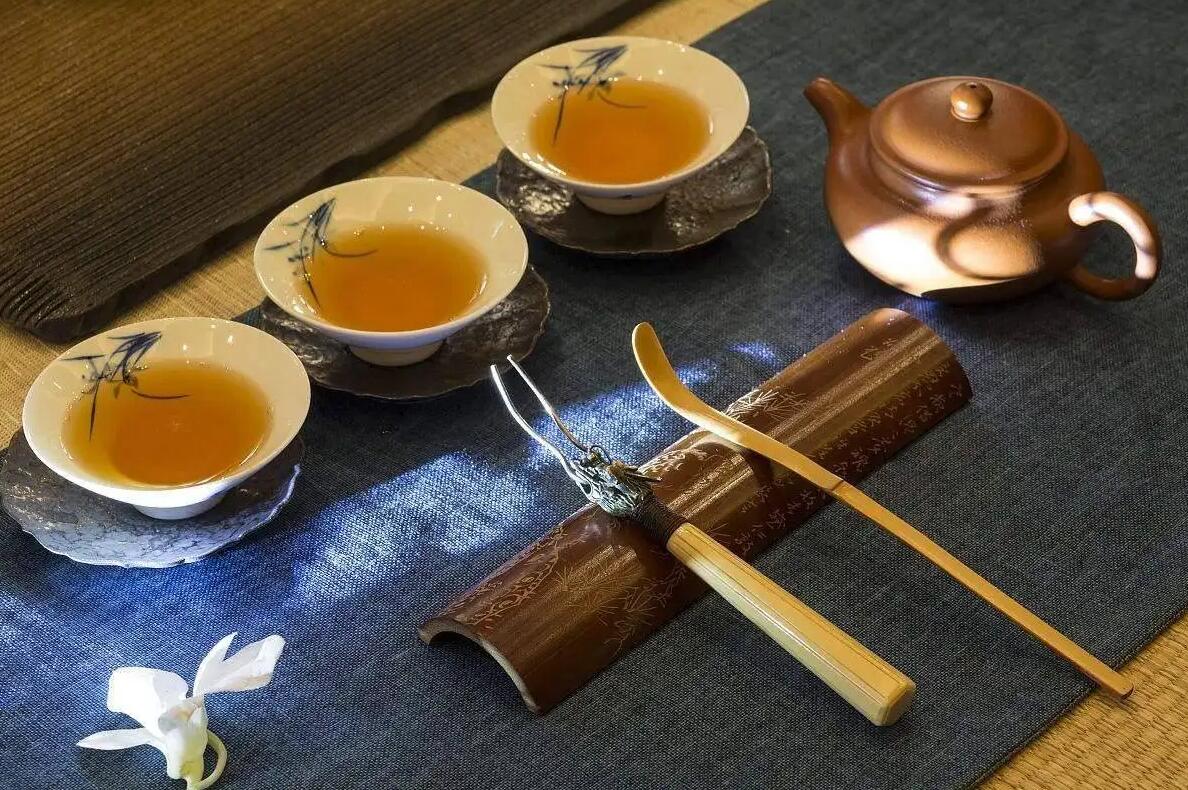Tea is beneficial to people's health. This fact seemed to have been discovered as soon as tea itself was discovered. Tea helped to relieve Shennong of the 72 different kind! of poisons that he tasted within a single day. According to many legends of tea's origins, tea was first discovered as an antidote to poisons or a cure to illnesses. Practical experience and modem medicine have both confirmed that, though tea does not have the mysterious detoxifying power described in the legends, it can indeed be very helpful in preventing and treating many illnesses.
Generations of Chinese medical canons have documented countless health benefits of tea. These writings are all based on traditional Chinese medical theories and practices. From the viewpoint of modem medicine, they seemed to lack the necessary scientific evidence. However, modem medicine has confirmed the medicinal value of tea from a different angle. Modem science has identified more than 500 chemicals in tea. While many of these chemicals contribute to tea's colour, smell, and taste, the vast majority of them are medicinal, including various vitamins, tea polyphenols, theine (caffeine), fatty acids, potassium, zinc, magnesium, iron, manganese, cobalt, selenium, fluorine, and other inorganic salts and trace elements.
Three to five cups of tea per day can sufficiently satisfy the body's daily need for vitamin C, and also provide a significant supply of the B Group vitamins. The various kinds of tea polyphenols and polysaccharides can help prevent atheroma, hypertension, diabetes, and hyperlipidemia. The various vitamins and traces of zinc and selenium and other elements help prevent cancer, protect against radiation, and slow aging. Traces of cobalt improve blood cell production, helping prevent cardiovascular diseases. Fluorine prevents tooth decay. The purine alkaloids, including theine or caffeine,effectively alleviate fatigue and revitalize the mind. Furthermore, drinking tea by glass tea set stimulates the secretion of gastric juice in the stomach, thus improving digestion. Tea also promotes the growth of beneficial probiotic bacteria in the gastrointestinal tract, aiding the excretion of the harmful metabolic waste. What is most inspiring and meaningful for the modem society is that tea can be effective in lowering cholesterol and losing weight.
No wonder the Tang dynasty pharmacologist Chen Cangqi once wrote in his Supplement to Msteria treats an illness, but tea treats all illnesses."
Although the medicinal benefits of tea are very broad, its effectiveness is nonetheless limited. In order to strengthen the medicinal efficacy of tea, with the tradition Chinese medical theory as a guide, the Chinese have created countless types of special medicinal tea by mixing in many different kinds of medicinal materials. While these medicinal teas can significantly differ in their functions, one thing stays constant: they are still tea, not medicines.
Tea's pharmaceutical values are not its only healthful benefits on the human body. More importantly, tea provides a spiritual enjoyment by calming the temper, thus indirectly benefits health. This is the result of the rich culture that the Chinese have attached to tea after thousands of years of development. The Chinese tea philosophy clearly differentiates drinking tea and sampling tea. Drinking tea simply fulfills the physiological need to quench thirst. From this perspective, tea is essentially no different from any other beverages. But the aim of sampling tea is a more advanced spiritual pursuit. The fulfillment of physiological need is minor, comparing to the spiritual goal of harmonizing the temper.
The Japanese call those who are more than 100 years old "tea elders". The phrase "tea elders" has a Chinese cultural origin. The Chinese character fo tea "茶" can be seen as being composed of four elements " 艹 "、 "八"、"十" and "八," which mean twenty, eight, ten, and eight, respectively: It can be interpreted as 20 plus 88, which gives 108, a very luck number that signifies longevity.
A famous tea sampler in the Tang dynasty Liu Zhenliang summarized the ten "virtues" of tea, concisely revealing the double benefits of tea on both the physical and the mental: tea 1) relieves worries 2) dispels fatigue, 3) nourishes the mind, 4) prevents illnesses, 5) is consistent with common etiquette, 6) expresses respect, 7) has flavours, 8) benefits, 9) elevates ethics, and 10) cultivates elegant sentiments.



